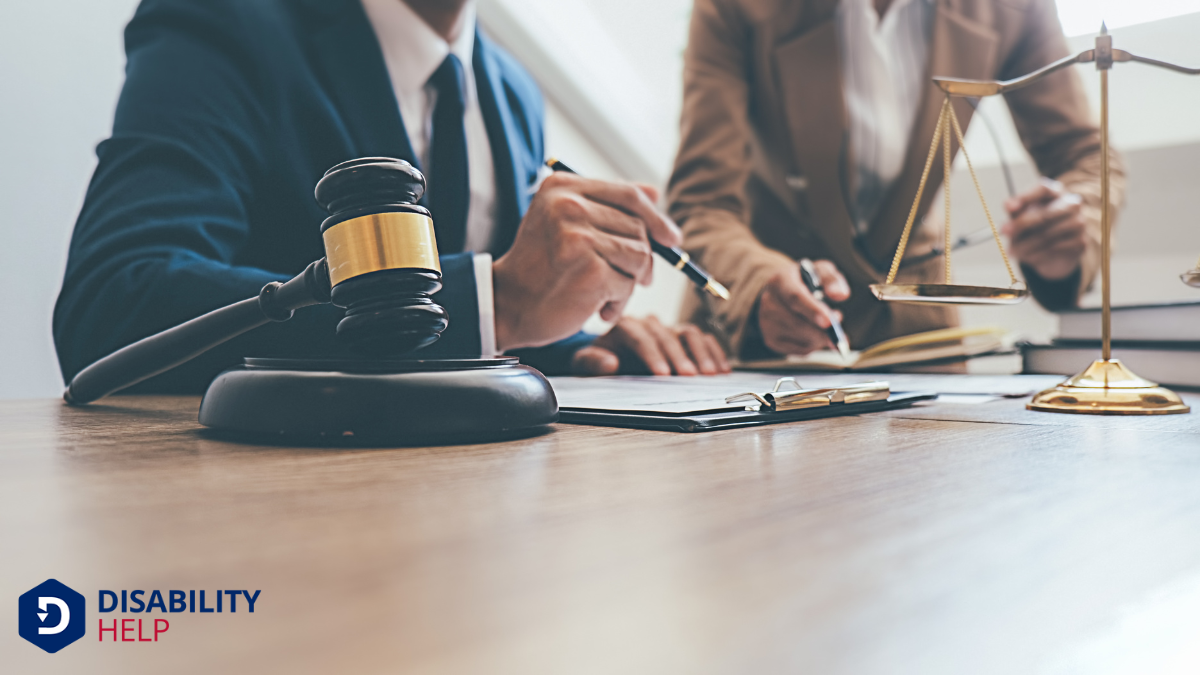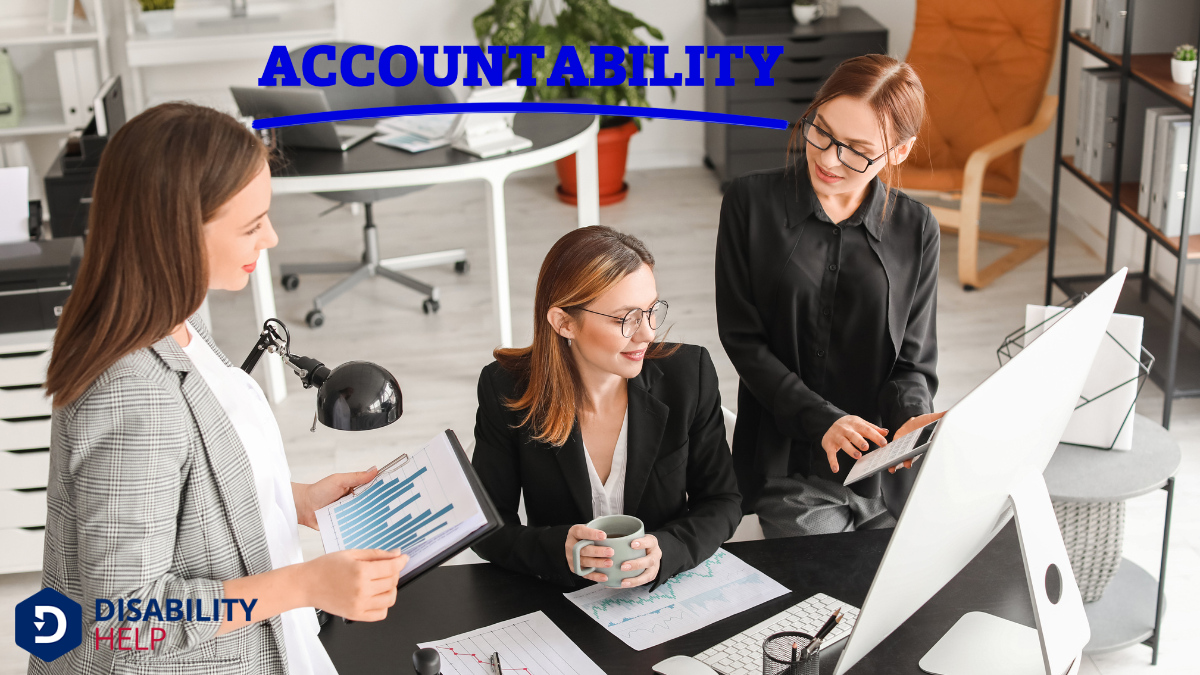When we think about enforcing disability rightsThe legal and human rights afforded to individuals with disabilities, often the focus of advocacy an..., advocacyThe act of arguing in favor of, supporting, or defending the rights and interests of individuals or ... organizations are pivotal. These groups don't just raise awareness; they actively shape policies and provide essential legal support. Their work empowers individuals and holds institutions accountable, ensuring that inclusivity and accessibilityThe design of products, devices, services, or environments to be usable by people with disabilities.... are more than just buzzwords. By collaborating with governmental and community partners, they create a robust network of support. So, how exactly do these organizations transform advocacy into action, and why does it matter for all of us?
Key Takeaways
- Advocacy organizations influence policy by collaborating with lawmakers to prioritize disability rights in legislation.
- They provide legal support to uphold disability rights and assist individuals through complex legal processes.
- Advocacy groups raise awareness and educate the public to transform societal attitudes towards disability rights.
- They promote accessibility by collaborating with architects and businesses to ensure inclusive environments.
- These organizations hold institutions accountable by monitoring compliance with disability rights protections and reporting violations.
Raising Awareness and Education
When we think about raising awareness and education on disability rights, it’s vital to understand the power of knowledge in transforming societal attitudes. By educating communities, we help dismantle stereotypes and foster inclusivity.
Advocacy organizations play an important role in this process by developing educational programs and resources. These initiatives guarantee that individuals with disabilities are seen and heard, promoting an environment of understanding and empathyThe ability to understand and share the feelings of another, particularly important in understanding....
We collaborate with schools and workplaces to integrate disability awareness into their curricula and policies. Through workshops, seminars, and public campaigns, we spread accurate information and challenge misconceptions.
When we join forces, we create a ripple effect that changes lives and empowers individuals with disabilities to assert their rights. It’s a collective effort that starts with education.
Policy Advocacy and Legislative Influence

Although raising awareness and education lay the groundwork, policy advocacy and legislative influence are where substantial change takes root.
We, as advocacy organizations, work tirelessly to shape policies that protect and empower individuals with disabilities. By engaging with lawmakers and stakeholders, we guarantee that disability rights remain a priority on the legislative agenda.
We analyze proposed laws, provide expert testimonies, and suggest amendments that reflect the needs of the disability community.
Through strategic campaigns, we rally public support and create pressure for legislative action. Our collective voice amplifies the concerns of those we represent, leading to meaningful policy reforms.
We remind lawmakers that disability rights are human rightsThe basic rights and freedoms that all people are entitled to, including those with disabilities, of..., pushing for laws that create inclusive and accessible environments for everyone.
Providing Legal Support and Representation
Let's explore how providing legal support and representationThe way people with disabilities are depicted in media, culture, and politics, often influencing pub... is vital in championing disability rights.
When we guarantee that individuals with disabilities have access to competent legal representation, we uphold their rights and navigate complex legal systems effectively.
Our collective efforts in offering support for disability cases make a significant difference in achieving justice and equality.
Legal Representation Importance
In the domain of disability rights, ensuring access to legal representation is essential for empowering individuals and safeguarding their rights.
We recognize that many individuals with disabilities face complex legal challenges that they mightn't handle alone. Advocacy organizations step in to provide the necessary expertise and support.
They help us understand and navigate the legal system, ensuring that our voices are heard and our rights are protected.
Support for Disability Cases
When it comes to supporting disability cases, advocacy organizations play an essential role in providing legal support and representation.
We recognize that maneuvering through the legal system can be intimidating, especially for individuals with disabilities. These organizations step in to offer guidance and expertise, ensuring that rights are upheld and voices are heard.
They work tirelessly to break down barriers, giving individuals the tools they need to advocate for themselves.
Promoting Inclusivity and Accessibility
Although progress has been made in recent years, promoting inclusivity and accessibility remains essential in guaranteeing that people with disabilities can fully participate in society.
As advocacy organizations, we endeavor to break down barriers that limit opportunities. Together, we can create environments where accessibility is a priority, not an afterthought.
To promote inclusivity, we must educate communities about the importance of accessible spaces and services. We can collaborate with architects, planners, and businesses to guarantee that buildings and digital platforms accommodate everyone.
By raising awareness and providing resources, we empower individuals and organizations to take proactive steps. Let's remember, accessibility benefits not just those with disabilities but enhances experiences for all.
Our collective effort can transform societies into truly inclusive spaces.
Holding Institutions Accountable

When we hold institutions accountable, we guarantee they adhere to compliance standards that protect disability rights.
By promptly reporting violations, we play a critical role in upholding these standards.
Additionally, our support for legal initiatives strengthens the collective push for justice and equityFairness and justice in the way people are treated, especially in the allocation of resources and op....
Monitoring Compliance Standards
Guaranteeing institutions adhere to compliance standards is essential for advancing disability rights and fostering accountability.
We, as advocates, need to actively engage in monitoring these standards. This involves regularly reviewing policies, procedures, and practices within institutions to guarantee they align with disability rights laws.
It's our duty to make certain that these standards aren't just words on paper but are effectively implemented.
Reporting Violations Promptly
Promptly reporting violations is essential for holding institutions accountable and protecting disability rights. When we notice an infraction, it's our responsibility to act swiftly, ensuring that disabled individuals aren't subjected to ongoing discrimination.
Advocacy organizations play an important role in this process by creating channels for reporting and offering guidance on what steps to take.
When we're proactive in addressing these issues, we send a clear message that violations won't be tolerated. It's important to document every detail, including dates, actions, and individuals involved. This information strengthens our case and compels institutions to address the problem quickly.
Legal Support Initiatives
To effectively hold institutions accountable, we must leverage legal support initiatives as a powerful tool in the fight for disability rights.
By understanding the role these initiatives play, we can make significant strides in enforcing the laws designed to protect and empower individuals with disabilities.
Let's explore how we can utilize these initiatives effectively:
- Strengthen Legal Frameworks: By advocating for stronger legal protections, we guarantee institutions can't bypass their responsibilities.
- Provide Legal Assistance: Offering accessible legal aid helps individuals navigate complex legal systems and empowers them to assert their rights.
- Educate Stakeholders: Raising awareness among institutions about their legal obligations promotes compliance and proactive behavior.
- Monitor Compliance: Regularly reviewing institutional practices helps identify and address violations efficiently.
Together, we can use these strategies to create lasting change.
Empowering Individuals With Resources and Support
When it comes to empowering individuals with disabilities, providing access to resources and support can be transformative. We must recognize that knowledge is power, and advocacy organizations play an essential role in sharing this knowledge. They provide educational materials, workshops, and counselingProfessional guidance to help individuals cope with emotional, mental, or social challenges, particu... to help individuals understand their rights and navigate complex systems.
By offering these resources, we're not just handing out information; we're fostering independence and building confidence.
Support networks also play a significant role. These networks connect individuals with others who share similar experiences, creating a sense of community and belonging.
Collaborating With Governmental and Community Partners
As we explore the importance of collaborating with governmental and community partners, it's crucial to understand the collective impact this synergy can create.
By working together, we can enhance the enforcement of disability rights and offer more thorough support for individuals with disabilities. This collaboration enables us to:
- Leverage Resources: Pooling resources from different sectors can expand our reach and effectiveness in advocating for disability rights.
- Influence Policy: By partnering with government entities, we can influence policy changes that better accommodate the needs of the disabled community.
- Increase Awareness: Joint efforts can boost awareness campaigns, ensuring a wider audience understands and supports disability rights.
- Strengthen Networks: Building strong relationships with community partners fosters a united front in addressing challenges faced by individuals with disabilities.
Frequently Asked Questions
How Do Advocacy Groups Fund Their Operations?
We rely on diverse funding sources like donations, grants, and sponsorships to sustain operations. By engaging with supporters, we guarantee our mission's longevity. Join us in strengthening our community and making a meaningful impact together.
What Challenges Do Advocacy Organizations Face in Their Work?
We face challenges like limited funding, awareness barriers, and traversing complex legal systems. Together, let's support these organizations by spreading awareness, volunteering, or donating. Our collective efforts can amplify their impact and overcome these obstacles.
How Can Individuals Volunteer With Disability Advocacy Organizations?
We can volunteer by reaching out to local advocacy organizations, joining their events, or offering our skills. Let’s connect with them online, attend informational sessions, and actively participate to empower the community and support disability rights.
What Are Some Success Stories of Advocacy Organizations in Disability Rights?
Let’s explore some success stories! We’ve seen advocacy organizations secure landmark legislation, increase accessibility in public spaces, and guarantee fair employment practices. Their efforts inspire us to continue supporting disability rights and create a more inclusive world.
How Do Advocacy Organizations Measure Their Impact or Success?
We evaluate our impact by tracking policy changes, monitoring legal outcomes, and gathering feedback from those we serve. We also assess public awareness shifts and improvements in accessibility to measure our success effectively and adaptA grassroots disability rights organization in the U.S. that focuses on promoting community-based se... our strategies.
Conclusion
In our work, we’re committed to making a difference in the lives of those with disabilities. By raising awareness, influencing policy, and providing essential legal support, we guarantee disability rights remain at the forefront. We promote inclusivity and hold institutions accountable, empowering individuals with the resources they need. Through collaboration with governmental and community partners, we amplify our impact. Together, we’re creating a more equitable world where everyone’s rights are respected and upheld.






